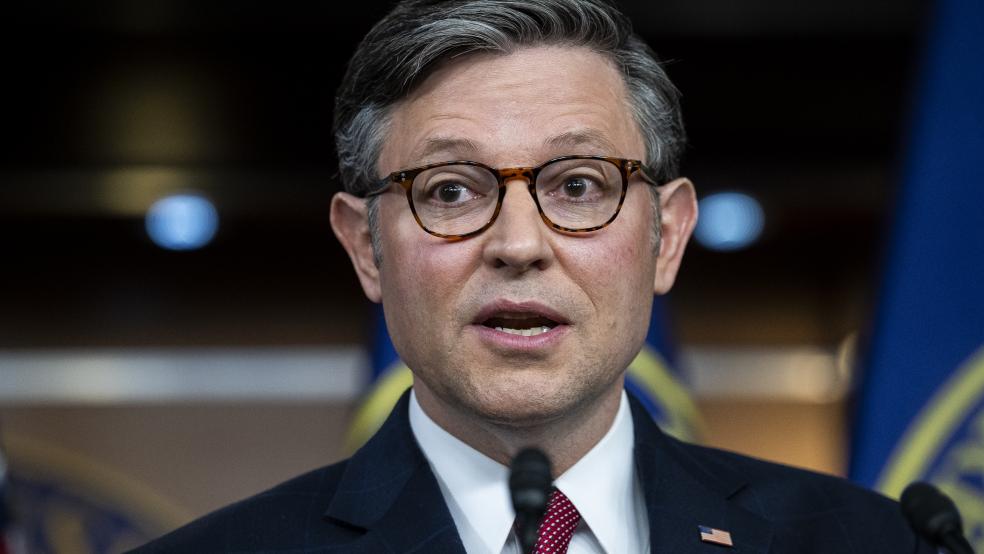The House and Senate on Thursday passed a short-term extension of government funding, avoiding a shutdown that would have otherwise started Saturday.
The bill, known as a continuing resolution or CR, is the fourth stopgap spending measure passed for this fiscal year, which started last October. It would keep one group of federal agencies operating through March 8 and another through March 22, buying more time for appropriators to finalize annual spending bills, including a batch of six set to be voted on next week.
The Senate vote Thursday night was 77-13. The earlier House vote, 320-99, easily topped the two-thirds majority required to pass the bill under suspension of the rules. Support for the bill came from 207 Democrats and 113 Republicans, while 97 Republicans and two Democrats voted against it.
“Just a day away from yet another GOP government shutdown, House Democrats have once again provided the votes to keep the government open and protect American families from the chaos and confusion of House Republicans,” Rep. Brendan Boyle, the top Democrat on the House Budget Committee, said in a statement. “Under Democratic leadership, the House of Representatives delivered the American Rescue Plan, the Bipartisan Infrastructure Law, the CHIPS and Science Act, and the Inflation Reduction Act. Under Republican leadership, barely keeping the government open is what passes for an accomplishment.”
House Speaker Mike Johnson defended the messy appropriations process, acknowledging that it is “ugly” but arguing that he and his conference have made some innovative improvements. “We broke the omnibus fever,” he told reporters before the vote, referring to the sprawling spending packages that combine individual spending bills, which conservatives despise. “That’s how Washington has been run for years. We’re trying to turn the aircraft carrier back to real budgeting and spending reform. This was an important thing, to break it up into smaller pieces.”
Johnson also said that the text of the first set of spending bills will be posted this weekend, giving lawmakers 72 hours to review it before a vote next week ahead of the new March 8 deadline. He added that he is already looking ahead to changing next year’s budget and appropriations process.
“The remaining six appropriations bills will be finalized ahead of the March 22 deadline,” Johnson said, “and then what I’m very excited about and anxious to do is turn the page on FY24 and get immediately into FY25 and that process, to change the way that it’s done — to back it up on the calendar, to do everything we can to get that job done by end of summer so that we’re not coming up at the end of September, end of the fiscal year and having to talk about CRs and omnibuses.”
What it all means: “At the end of the process, now expected to extend into late March, Congress is set to approve more than $1.6 trillion in spending for the fiscal year that began Oct. 1 — roughly in line with the previous fiscal year,” writes Kevin Freking of the Associated Press. “That’s the amount that former Speaker Kevin McCarthy negotiated with the White House last year before eight disgruntled Republican lawmakers joined with Democrats a few months later and voted to oust him from the position.”
Hard-right Republicans have pushed for steeper spending cuts or policy victories, but Johnson lately has acknowledged his limited leverage to make conservative demands. “He is making the inevitable decision that was clear in September,” Republican Rep. Patrick McHenry said, per The New York Times. “It was clear in November, December — it’s been clear for months that this is the outcome.”
Still, Republican leaders tried to highlight their achievements.
“When you take away Defense and Veterans Affairs, the rest of the agencies are going to be seeing spending cuts in many cases,” said House Majority Leader Steve Scalise. “There are also some policy changes that we pushed through the House that will be in the final product. Of course, some of those are still being negotiated.”
What’s next: There are still some hurdles to clear and shutdown threats to defuse before the appropriations process is complete, and the most contentious of the annual spending bills have yet to be finalized. That may be the true test for Johnson and congressional appropriators.
But after Thursday’s vote on the stopgap spending bill, the House went on to approve a short-term extension of FAA authorization, its final vote of the week after returning yesterday from a 12-day-long Presidents’ Day recess. As Joan McCarter notes at the liberal site Daily Kos, between starting their legislative week Wednesday afternoon and ending it Thursday, House lawmakers put in a “grueling 16-hour work week to fund government for one whole week.”
This article was updated to reflect the Senate vote.





